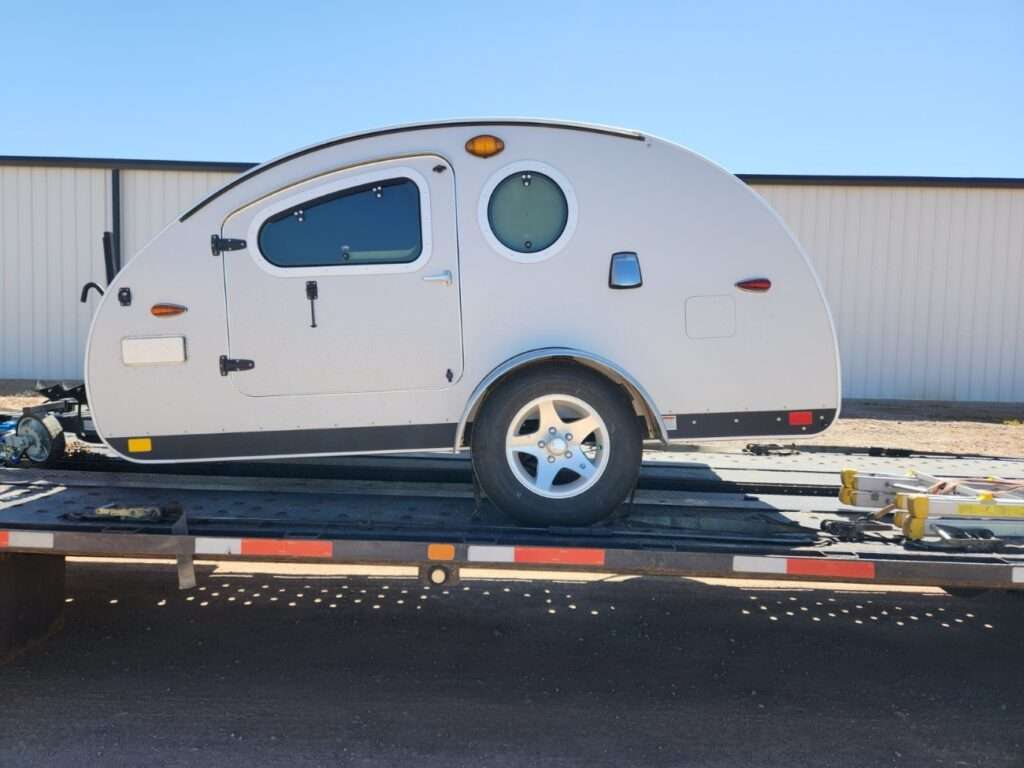Latest Insights Into RV Transport Costs & Useful Tips
Transporting an RV using a professional auto transport carrier can be a significant investment. The auto transport market is constantly changing and for those unfamiliar with it, it might be difficult to understand just how much planning and effort goes into the process of having their vehicle delivered to their doorstep. Many factors influence the cost involved in transporting an RV and no two shipments are the same.
One thing you will not find in this article is a definitive answer or price. And there is a good reason for this: Only a transport specialist can give you a quote that takes into account all of your vehicle’s details as well as routes, pickup and delivery locations.
However, understanding some of the factors that influence the cost can help you budget effectively and avoid surprises. What’s more, read to the end to find some useful tips to keep your costs low without compromising on service. Whether you’re moving cross-country or just a few states over, there are several key elements that determine how much you’ll pay for RV transport. Let’s explore these factors in detail.

Skip Ahead
Factors That Affect RV Transport Cost
Distance
One of the most important factors in determining the cost of transporting your RV is the distance it needs to travel. Most carriers charge a flat fee plus a cost per mile. This explains why shorter distances may not always be significantly cheaper than longer ones, as longer distances can lead to a lower cost per mile overall. While the total cost will be higher for longer trips, you get more value per mile.
Additionally, the number of days it takes to reach the destination can also influence the cost. If the trip requires multiple days of travel, you might incur additional expenses for driver accommodations and other logistical considerations.
Type of RV
The type of RV you’re transporting will also significantly impact the cost. Here’s a quick breakdown:
Camper Trailers are typically hauled on a flatbed trailer or car hauler. These are usually smaller and lighter, making them a bit more straightforward to transport.
Travel Trailers are usually hauled behind a pickup truck. They can vary in size and weight, which means the cost can fluctuate depending on these factors.
Toy Haulers are generally towed just like travel trailers. These are designed to carry extra cargo, like ATVs or motorcycles, which can add to the weight and complexity of the transport.
Fifth Wheels are also typically towed. These RVs are known for their unique hitching mechanism, requiring a specialized towing vehicle, which can influence the cost.
Motorhomes come in various classes that affect the transport method. Larger Class A and B motorhomes often use a driveaway service, meaning a professional driver will drive the RV to its destination. On the other hand, Class C motorhomes can be hauled.
Each type of RV has its unique requirements and challenges, affecting the overall price. For instance, a motorhome might be driven to its destination (driveaway service), which might be priced similarly to hauling but can help you avoid adding extra miles to your RV.
It’s also important to note that the cost to move your RV across the country is not based on its value. On the contrary, a non-operable RV requires specialized equipment that can drive up the price to move it.
Type of Transport
There are different methods for transporting an RV, and the cost varies accordingly:
You can opt to have your RV hauled on a flatbed or car hauler. This method is typically the most expensive because it requires specialized equipment and skilled labor. The advantage here is that your RV won’t accumulate any additional mileage, keeping it in pristine condition for your adventures.
Another option is to have your RV towed behind a pickup truck. The cost for this service can vary depending on the size of your RV. For example, towing a Class B motorhome that’s under 10’6″ is usually more affordable than opting for a driveaway service. This method is quite popular for those with smaller RVs who want to save on transportation costs.
Lastly, there’s the driveaway service, where a professional driver will drive your RV to its destination. The pricing for this service often aligns closely with hauling, but it’s worth noting that your RV will accumulate miles during the trip. If preserving your RV’s mileage is a priority, you might find that hauling is a better option.
Ultimately, it’s best to leave the decision to an expert. Transport specialists can assess what’s best for you and your RV and still give you a good deal for the transport.
Delivery Time Frame
The urgency of your transport can also affect the price. If you need your RV picked up or delivered quickly and have a less flexible schedule, expect to pay a premium. Scheduling your transport well in advance and being flexible with dates can help you save money.
Time of Year
Seasonality plays a crucial role in RV transport costs. Summer is usually a busier season for RV transport, which can drive prices up due to higher demand. If possible, consider scheduling your transport during the off-peak seasons to take advantage of lower rates.
Average Cost per Mile and Range
Transporting RVs and pricing that service is complex and depends on many factors. Therefore, it is difficult to put an average cost or cost estimate on a shipment without knowing all the details. Generally, the cost per mile can range from $1 to $4, depending on the factors mentioned above. However, it’s essential to get a detailed quote to understand the exact cost for your specific needs.
Tips for Saving on RV Transport Cost
- Use a Broker/Auto Transport Company: Working with a reputable broker or auto transport company can give you access to a vast network of drivers and help you secure the best price without compromising on service.
- Plan Ahead and Be Flexible: Scheduling your transport well in advance and being flexible with your dates can result in significant savings.
- Choose Major City Locations: Picking up or delivering your RV to major city locations can be more cost-effective than opting for remote or less populated areas.
- Negotiate: Don’t hesitate to negotiate with transport companies. Many are willing to offer discounts, especially if you’re flexible with your schedule or can bundle multiple services.
Why Trusting a Professional Beats Relying on Online Cost Estimates for RV Transport Cost
We advise to be cautious of online cost calculators or estimates that don’t take all the details into account. These tools often provide a ballpark figure that might not reflect the true cost of transporting your RV. Transport specialists, on the other hand, evaluate the market at a specific moment, considering factors such as current fuel prices, route conditions, and the availability of carriers. This thorough assessment ensures that you get an accurate and fair price, making the transport process faster and smoother for you. Trusting an experienced professional can save you from unexpected costs and delays, providing peace of mind that your RV will be moved efficiently and safely.


